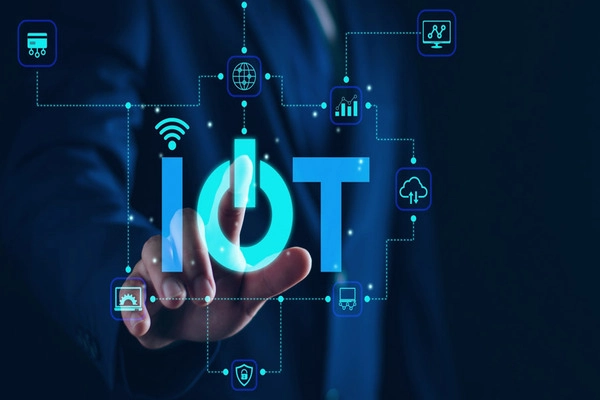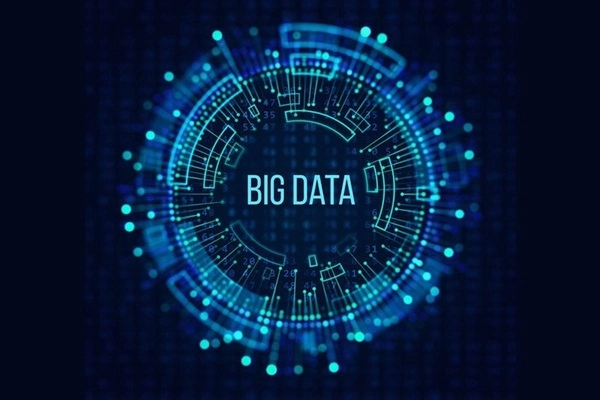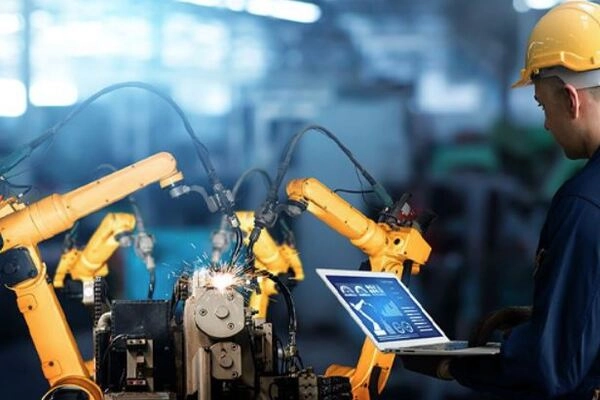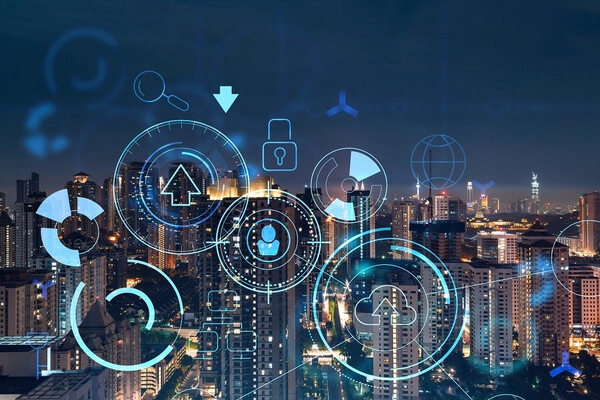In the era of Industry 4.0, IoT Big Data has become a crucial tool that helps businesses collect and analyze data from internet-connected devices. Combining IoT with Big Data not only provides real-time information but also optimizes operations, predicts market trends, and enhances customer experiences. This article will explore the concepts, benefits, and practical applications of IoT Big Data across various fields.
Concepts of IoT and Big Data
To better understand IoT Big Data, it is essential to first grasp the concepts of its individual components: IoT and Big Data.
What is IoT?
IoT (Internet of Things) is a system of devices, sensors, and machines connected to the internet, enabling them to automatically collect, exchange, and share data. IoT devices can include smartwatches, surveillance cameras, temperature sensors, medical equipment, or industrial machinery.

Thanks to IoT, people can monitor and control activities remotely, optimize operational processes, and improve management accuracy. For example, in the logistics sector, IoT enables real-time tracking of the location and condition of goods, reducing the risk of loss or damage.
What is Big Data?
Big Data refers to massive datasets characterized by the three Vs: Volume (large amount), Velocity (high speed), and Variety (diverse types of data). Unlike traditional data, Big Data is not only stored but also analyzed to generate valuable insights.

Through advanced data analytics tools such as Machine Learning, AI, and predictive analytics platforms, Big Data helps businesses forecast trends, optimize costs, and improve operational efficiency. When combined with IoT, Big Data not only analyzes existing data but also processes real-time data from connected devices.
By integrating IoT with Big Data, businesses can monitor production processes, track customer behavior, predict market demand, and enhance user experiences, thereby creating a clear competitive advantage.
Comparison between IoT and Big Data
Although IoT and Big Data are closely related, they differ in nature and purpose. The comparison can be summarized as follows:
| Criteria | IoT | Big Data |
|---|---|---|
| Nature | Data source | Data processing tool |
| Role | Generates and collects information from the physical environment via devices and sensors | Stores, analyzes, and exploits data to create value |
| Function | Acts as the “arm” that collects data | Acts as the “brain” that analyzes data and makes decisions |
| Relationship | Provides data for Big Data | Processes data from IoT to make intelligent decisions |
| Effectiveness when combined | Creates a powerful ecosystem, enabling businesses to operate smartly and respond quickly to market changes | |
Benefits of combining IoT and Big Data in businesses
Applying IoT Big Data offers numerous practical benefits across different industries, helping businesses optimize operations, enhance decision-making, and gain a competitive advantage.

- Monitoring and controlling operations: IoT provides real-time data on machinery, equipment, and production processes, while Big Data analyzes this data to detect issues, issue early warnings, and optimize performance.
- Predictive and intelligent decision-making: Big Data helps analyze patterns and trends from IoT data, enabling businesses to forecast demand, optimize inventory, and reduce operational costs.
- Enhancing customer experience: Combining IoT and Big Data allows businesses to track customer behavior, analyze consumption habits, and personalize products and services.
- Strengthening security and risk management: IoT data analyzed through Big Data helps identify potential risks, from equipment failures to cybersecurity threats.
Practical applications of IoT Big Data across industries
IoT Big Data has been widely applied across various industries, delivering tangible benefits and improving operational efficiency.

- Manufacturing: Monitor production lines in real-time, detect machinery faults, and optimize productivity.
- Agriculture: Use IoT sensors to track soil moisture, temperature, and nutrients, while Big Data predicts crop yields and optimizes irrigation.
- Healthcare: IoT monitors patients’ health remotely, and Big Data analyzes medical data to provide accurate diagnoses and personalized treatments.
- Transportation and Logistics: Monitor vehicles, manage warehouses, predict traffic conditions, and optimize delivery routes.
- Smart Cities: IoT measures air quality, energy usage, and traffic, while Big Data analyzes the data to improve urban management efficiency.
These applications not only reduce costs and increase efficiency but also create new value for consumers and businesses.
The potential and future trends of IoT Big Data
The future of IoT Big Data promises rapid growth, driven by factors such as:

- Expanding IoT networks: The number of connected devices continues to grow, generating massive amounts of data that need to be analyzed.
- AI and Machine Learning technologies: These tools enable deeper insights from IoT data, from predicting customer behavior to optimizing automated production.
- Data security and privacy: As data becomes increasingly valuable, IoT security and Big Data management will become top priorities.
- Innovation across industries: From healthcare, logistics, and energy to education, IoT Big Data will enable new, smarter, and more flexible business models and services.
Overall, IoT Big Data is not only a technological trend but also a key factor helping businesses enhance efficiency, gain competitive advantages, and meet increasingly complex market demands. By applying IoT combined with Big Data analytics, businesses can forecast trends, improve customer experiences, and make smarter decisions. The future of industries will be closely tied to the power of IoT Big Data.
